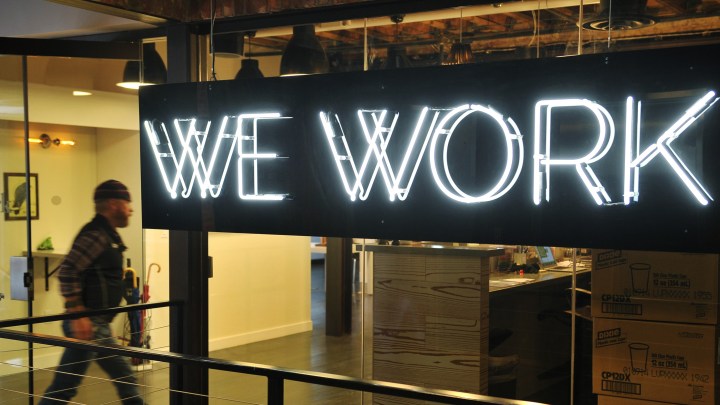
What’s the rationale for selling a private company’s stock ahead of an IPO?
What’s the rationale for selling a private company’s stock ahead of an IPO?

Right now, one of the most world’s valuable venture-backed startups is the shared workspace company WeWork — valued at $47 billion this year. It’s also set to go public sometime later this year or next.
But this week, a report in the Wall Street Journal found that WeWork’s co-founder, Adam Neumann, has been using his stake in the company to raise cash — $700 million or so — raised by taking out loans against his equity and selling some of his own stock.
Kathleen Smith at Renaissance Capital, which researches newly public companies, says it’s not a good look when a founder trims down his stake ahead of an IPO.
“We like to see founders have skin in the game,” Smith said.
Smith said if a founder holds on to their stock ahead of an IPO, it inspires confidence. If a founder sells, investors might worry about what could happen after the company goes public, because they’ll see a founder with little downside risk if the company runs into trouble.
But WeWork’s also going public at a time when the economy’s been strong, and the stock market’s been rising. Plus, WeWork leases space to other companies in mostly urban areas, where the real estate market has also seen relative strength.
Santosh Rao, head of research at Manhattan Venture Partners, says if Neumann has to take out money now, it’s a good time to do it.
The practice of selling stock in a private company before it goes public is becoming more common. Companies are waiting longer before going public, which makes the incentive for founders to cash out even stronger.
Jay Ritter at the University of Florida’s business school said there’s growing interest from investors — including sovereign wealth funds, venture capital funds and mutual funds — who want to get in early. That private stock is only available if someone’s willing to sell it.
There’s a lot happening in the world. Through it all, Marketplace is here for you.
You rely on Marketplace to break down the world’s events and tell you how it affects you in a fact-based, approachable way. We rely on your financial support to keep making that possible.
Your donation today powers the independent journalism that you rely on. For just $5/month, you can help sustain Marketplace so we can keep reporting on the things that matter to you.


















